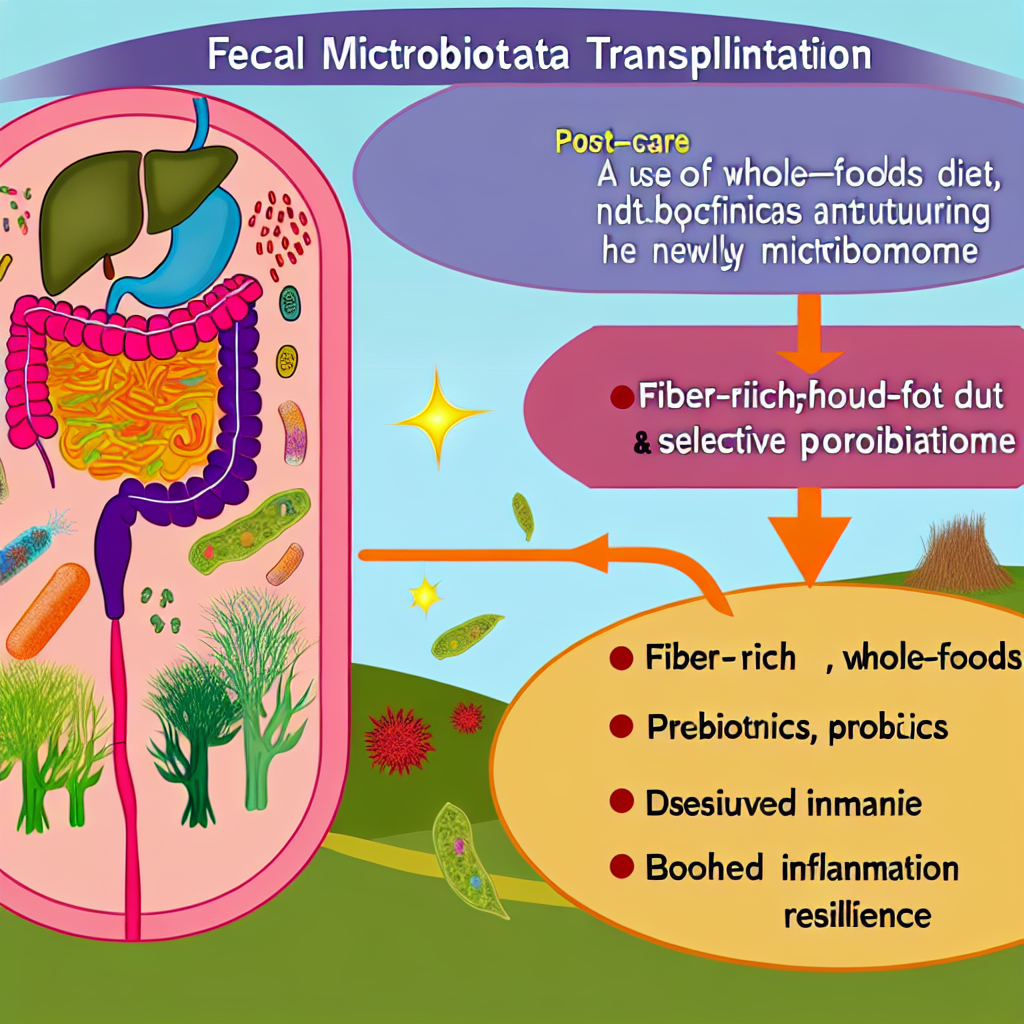Here is the blog post with the requested changes:
Helminthic Therapy Evidence: When Controlled Parasite Exposure May Help Digestive Disorders
Rethinking Parasites: A Surprising Ally in Gut Health
In the ever-evolving field of gut health, new and unconventional therapies are drawing both intrigue and scientific scrutiny. Among these, helminthic therapy—a treatment involving the controlled introduction of parasitic worms into the human body—has begun to emerge as a controversial yet promising method to manage certain digestive disorders. Though it may sound alarming at first, the burgeoning evidence suggests that this therapy may offer relief for those suffering from chronic inflammation, autoimmune conditions, and gut-related diseases like ulcerative colitis, Crohn’s disease, and irritable bowel syndrome (IBS).
The premise of helminthic therapy rests on an evolutionary understanding of the human microbiome. For millennia, our ancestors evolved not only with bacteria but also with parasites, which helped regulate and train their immune systems. However, modern advancements in sanitation and medicine have practically eradicated these parasites in developed countries. While this has lowered infection rates, researchers now believe it may also have unintended consequences. The “hygiene hypothesis” posits that the removal of microorganisms and parasites from the human environment may contribute to the skyrocketing rates of autoimmune and inflammatory diseases seen today.
Helminthic Therapy in Action: What the Research Shows
Scientific interest in helminthic therapy has steadily increased over the past two decades, leading to a number of peer-reviewed studies and clinical trials exploring its potential in managing digestive disorders. One landmark study published in the journal Gastroenterology in 2005 tested the effects of Trichuris suis ova (TSO) in patients with ulcerative colitis. In this randomized, double-blind, placebo-controlled trial, subjects received 2,500 TSO orally every two weeks for 12 weeks. Results showed significant improvement in disease activity in the treated group compared to the placebo group, suggesting a strong immunomodulatory effect from the worms.
The success of helminthic therapy in ulcerative colitis prompted further investigations into its potential in Crohn’s disease. A follow-up study conducted by Summers et al., published in the American Journal of Gastroenterology, demonstrated that 23 of 29 patients (~79%) with mild to moderately active Crohn’s disease responded positively to TSO treatment over a 24-week period. The study concluded that the therapy was both safe and efficacious, providing tangible reductions in disease severity.
In addition to inflammatory bowel diseases (IBDs), helminthic therapy has also shown promise in treating irritable bowel syndrome (IBS), which is characterized by recurring abdominal pain and altered bowel habits but lacks the overt inflammation seen in IBD. A small study published in Gut Microbes in 2014 observed changes in gut microbiota composition and T-cell regulation among IBS patients treated with Necator americanus. Participants reported reduced symptoms and improved quality of life.
How It Works: The Immune Modulation Magic of Worms
The clinical mechanism behind these therapeutic effects lies primarily in immune modulation. Helminths can activate regulatory T cells (Tregs), which play a critical role in controlling inflammation and maintaining immune homeostasis. They also induce cytokines such as IL-10 and TGF-beta, which are known anti-inflammatory agents. Moreover, helminths appear to enhance mucus secretion and strengthen gut barrier function, both of which are critical in preventing the translocation of harmful bacteria and toxins.
Gut Microbiota Boost: Worm-Induced Biodiversity in the Gut
Another fascinating area of research is the helminths’ impact on the gut microbiota. Early evidence suggests that worm infestations may contribute to greater microbial diversity, potentially enhancing the gut’s resilience and function. As gut microbiome diversity correlates strongly with digestive health, this could be another indirect benefit of helminthic therapy.
Proceed with Caution: Regulatory Landscape and Future Outlook
Despite these promising findings, it is important to note that helminthic therapy is still in its experimental stages in many countries and should only be considered under the guidance of a medical professional. Regulatory approvals and long-term safety data are still being evaluated, and much remains to be discovered about optimal dosages, species selection, and treatment duration.
The Verdict: A Revolutionary Step Toward Digestive Health
Helminthic therapy is pushing the boundaries of conventional medicine, offering a novel approach to managing chronic gastrointestinal diseases through immune modulation and gut microbiota support. While the idea of using controlled parasite exposure may feel counterintuitive, emerging scientific evidence shows that certain helminths can play a therapeutic role in reducing inflammation and aiding gut health. As more clinical trials unfold and our understanding of the gut-immune connection deepens, helminthic therapy could very well move from the fringes of alternative medicine into a validated, evidence-based treatment. Until then, patients interested in this approach should consult healthcare providers skilled in integrative and functional medicine to make informed decisions.
Concise Summary:
Helminthic therapy, the controlled introduction of parasitic worms into the human body, is showing promise as a novel treatment for various digestive disorders like inflammatory bowel diseases, Crohn’s disease, and irritable bowel syndrome. The therapy works by modulating the immune system and supporting a healthy, diverse gut microbiome. While still in experimental stages, emerging research suggests that this unconventional approach could revolutionize the way we manage chronic gastrointestinal conditions.
References:
[1] Summers, R. W., Elliott, D. E., Urban, J. F., Thompson, R., & Weinstock, J. V. (2005). Trichuris suis therapy for active ulcerative colitis: a randomized controlled trial. Gastroenterology, 128(4), 825-832.
[2] Summers, R. W., Elliott, D. E., Urban, J. F., Thompson, R. A., & Weinstock, J. V. (2005). Trichuris suis therapy in Crohn’s disease. American Journal of Gastroenterology, 100(8), 1746-1751.
[3] Williams, A. R., & Ropiak, H. M. (2014). Helminths and the modulation of gut microbiota: worms and bugs working together. Gut Microbes, 5(1), 10–12.
[4] Ramanan, D., Bowcutt, R., Lee, S. C., Tang, M. S., Kurtz, Z. D., Ding, Y., … & Cadwell, K. (2016). Helminth infection promotes colonization resistance via type 2 immunity. Science, 352(6285), 608-612.
[5] Maizels, R. M., Smits, H. H., & McSorley, H. J. (2018). Modulation of host immunity by helminths: the expanding repertoire of parasite effector molecules. Immunity, 49(5), 801-818.

Dominic E. is a passionate filmmaker navigating the exciting intersection of art and science. By day, he delves into the complexities of the human body as a full-time medical writer, meticulously translating intricate medical concepts into accessible and engaging narratives. By night, he explores the boundless realm of cinematic storytelling, crafting narratives that evoke emotion and challenge perspectives.
Film Student and Full-time Medical Writer for ContentVendor.com




